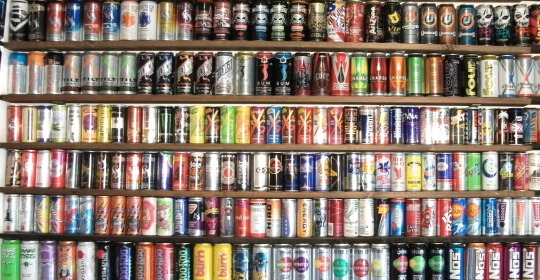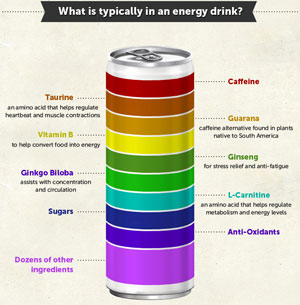
Even Non-Alcoholic Energy Drinks Pose Significant Threat to Health
Energy drinks with a high caffeine content, even those that contain no alcohol, could present a significant threat to people and public health.
Researchers advise education by health providers, immediate consumer action, new federal labeling requirements and voluntary disclosures by manufacturers. The ban on pre-mixed alcoholic energy drinks was a major 1st step, but ongoing action is required. People are still able to combine these caffeinated energy drinks with alcohol by themselves. It’s also a concern that no regulation exists regarding the amount of caffeine that is allowed in an energy drink.
The research cites 3 public health concerns associated with all available energy drinks which contain moderate to high levels of caffeine:
- Individuals frequently combine alcohol and energy drinks: Energy drinks have become a major part of the subculture of partying. The practice of mixing energy drinks with alcohol – which is more common than previously thought – has been associated consistently with consuming large quantities of alcohol each drinking session and subsequent serious alcohol related repercussions like driving while drunk and sexual assault. Studies have shown that people who mix energy drinks with alcohol miscalculate their true degree of impairment.
- Caffeine can have negative health effects in sensitive individuals: For that reason ongoing public health awareness with regards to high levels of caffeine intake, regardless of what the beverage source, in susceptible people is obviously warranted.
- Energy drink usage seems to be connected to alcohol dependence along with other drug usage: More studies are necessary to shed light on the possible mechanisms underpinning the associations which have been found in studies.
- The researchers recommend a number of proactive steps to protect public health:
- Health care professionals need to inform their patients of the risks of the consumption of highly caffeinated energy drinks;
- People need to educate themselves about those risks;
- Manufacturers need to advise individuals about the risks of combining their products with alcohol;
- Regulatory agencies need to require energy drink manufacturers to divulge caffeine content on product labels and display proper warnings.


Leave a reply